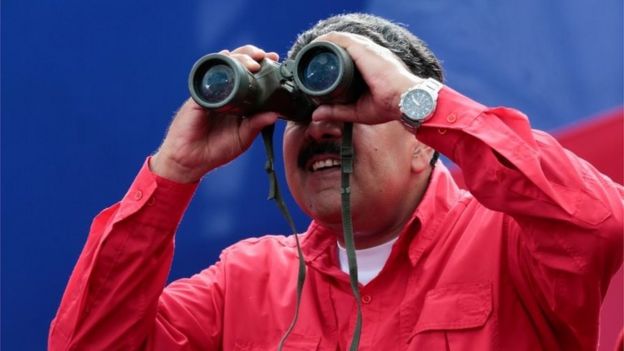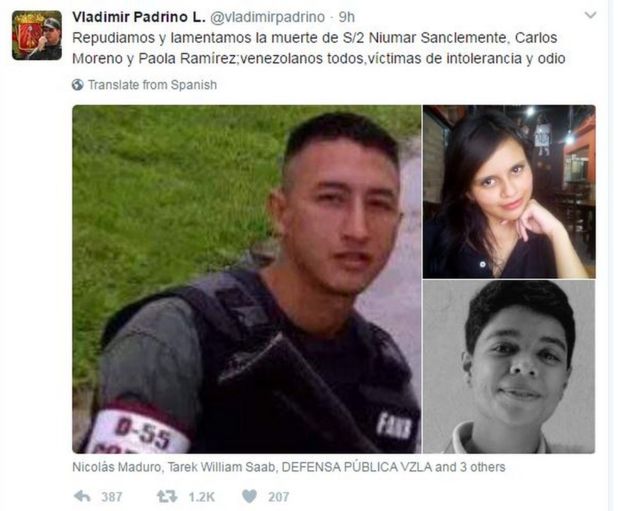Police in Venezuela have fired tear gas during the second day of violent protests in the capital, Caracas.
Three people were killed on Wednesday when opponents of President Nicolas Maduro took to the streets to march.
The huge protests in Caracas and western Venezuela come amid a serious economic crisis in the country.
Opposition leaders have accused Mr Maduro of ruling the country like a dictator; the president says opponents are trying to topple him by force.
Venezuela’s opposition leader, Henrique Capriles, earlier this week called on the public to take part in anti-government protests across the country to press their demands for early presidential elections and the release of jailed politicians.
 Image copyrightREUTERS
Image copyrightREUTERSOn Thursday, police in Caracas, backed by armoured trucks, were targeted by a masked group of protesters hurling stones as they attempted to control the crowds.
There were multiple reports of riot police firing tear gas at demonstrators who were fleeing from the scene with their faces covered with masks and bandanas.
Some of Wednesday’s marches also turned violent after protesters clashed with members of the security forces and supporters of Mr Maduro.
Seventeen-year-old Carlos José Moreno was killed by a shot in the head in the centre of Caracas near an opposition demonstration.
A 23-year-old student, Paola Ramirez, was also shot dead in the city of San Cristobal, near the Colombian border.
Her boyfriend told Reuters news agency that they were chased by armed men on motorbikes as they were leaving an anti-government protest in the city, also on a motorbike.
A national guardsman was also shot and killed south of the capital.
 Image copyrightTWITTER/VLADIMIR PADRINO L
Image copyrightTWITTER/VLADIMIR PADRINO LOpposition leaders blame the government for Venezuela’s high inflation, rampant crime and shortages of basic goods.
They have four key demands:
- Removal from office of Supreme Court justices who issued a ruling stripping the National Assembly of its powers (the ruling has since been revoked)
- General elections in 2017
- Creation of a “humanitarian channel” to allow medication to be imported to counter the severe shortages in Venezuela
- Release of all the “political prisoners”
The government and its supporters blame imperialist forces led by the United States for the dismal state of the economy and say they are victims of an “economic war” being waged against them.
They have vowed to “defend the Bolivarian Revolution”.
As previous attempts at dialogue between the government and the opposition have failed it is hard to see fresh negotiations starting anytime soon.
The National Electoral Council could try to defuse the situation by setting a date for regional elections, which had originally been expected to be held last December.
But for the immediate future, belligerent rhetoric and protests are likely to continue.
